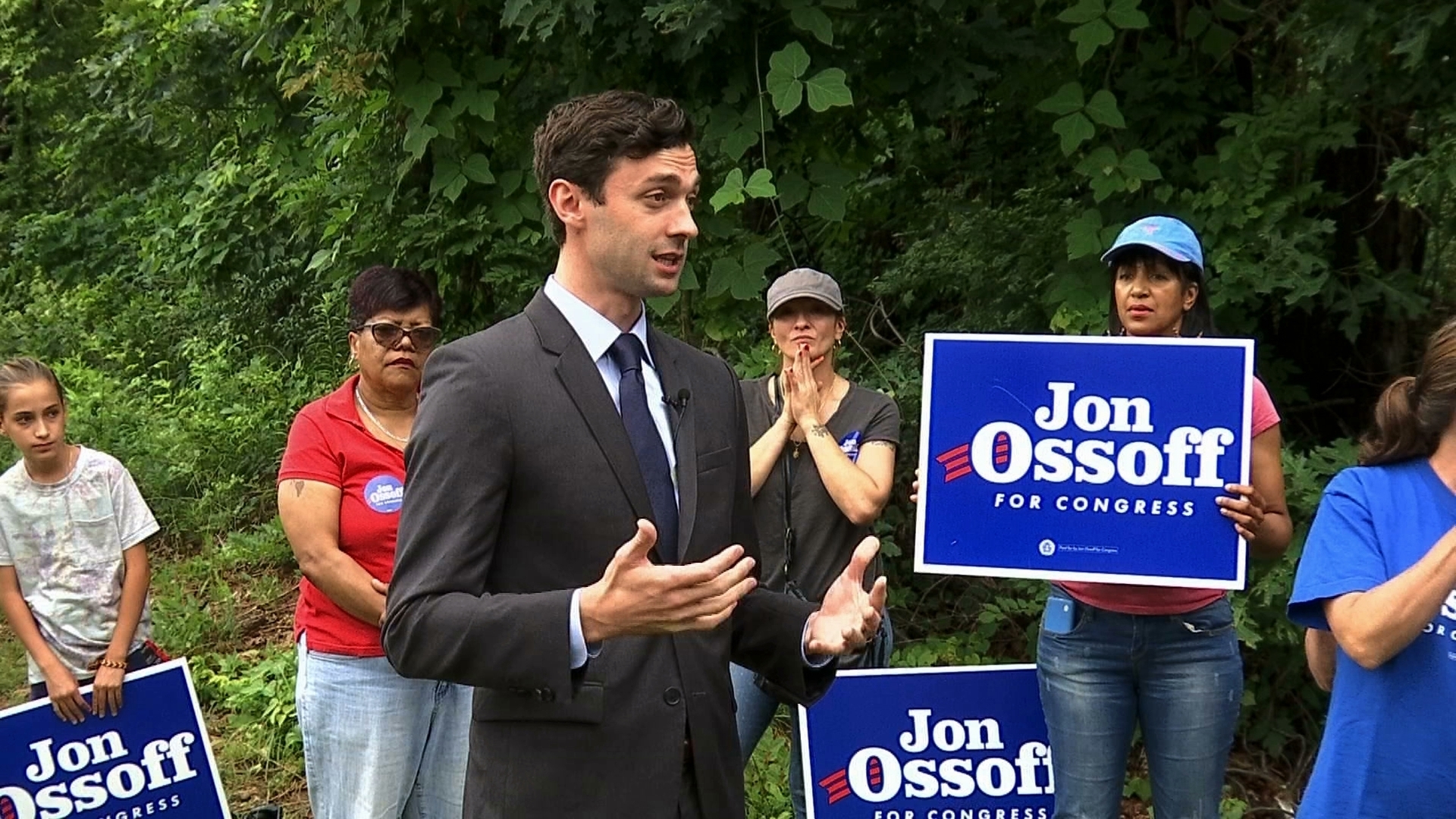Jon Ossoff Doesn’t Live In The 6th District, But He Could Still Represent It
Democrat Jon Ossoff wants to be the next congressman from Georgia’s 6th District, but he doesn’t live within its boundaries, which may be a political liability, even if it’s one many members of Congress overcame to be elected.
Like us on Facebook
Outside a polling place in Brookhaven, Republicans like Gary Sams said they were bothered by Ossoff’s address.
“I think it’s ridiculous,” Sams said.
If he wants to complain about traffic, or pollution, Sams said he’d like a member of Congress who deals with the same problems he does.
“Not only does Jon Ossoff not live in the district,” said Kate Constantini, a spokesperson for his opponent Republican Karen Handel, “but he has proven time and again how out-of-touch he really is with the 6th.”
Democrats at the Brookhaven polling place, like Bridget Fields of unincorporated DeKalb County, said they don’t mind Ossoff lives outside the district.
“The people that live in a certain area within the 6th District do not…experience life in my general area,” said Fields. “Do the people of Johns Creek represent where I am? No. We have very different experiences.”
Still, on Election Day in the first round of the race, Ossoff’s mailing address got some extra attention.
He faced questions like this one from Alisyn Camerota of CNN: “Mr. Ossoff, is it true that you cannot vote for yourself?”
“I grew up in this district, I grew up in this community,” said Ossoff, noting he’s been living with his fiancée as she attends medical school.
“And as soon as she concludes her medical training I’ll be 10 minutes back up the street into the district where I grew up,” he said.
But the Republican voter Sams didn’t seem to care Ossoff lives close by.
“I don’t know where he lives, I just know he doesn’t have the opportunity to vote in this election,” said Sams.
About 5 percent of U.S. House members don’t live in the districts they represent, according to the Washington Post.
“Members of the House need to live in the state they represent, but there’s not a constitutional requirement that you need to live in the district that you represent,” said Jessica Levinson is a law professor at Loyola University Los Angeles.
Levinson said sometimes candidates run in a neighboring district because they see a better opportunity to win, or sometimes they might be more socially, and culturally connected to a neighboring district.
“A lot of times what we see is district lines actually break up a community,” Levinson said.
Levinson stressed that whether a candidate lives in a district is solely a political issue, one that’s ultimately about whether the candidate’s identity matches the district. In other words, are they an insider or an outsider?
Republicans have controlled the 6th District for nearly 40 years.

9(MDAxODM0MDY4MDEyMTY4NDA3MzI3YjkzMw004))








